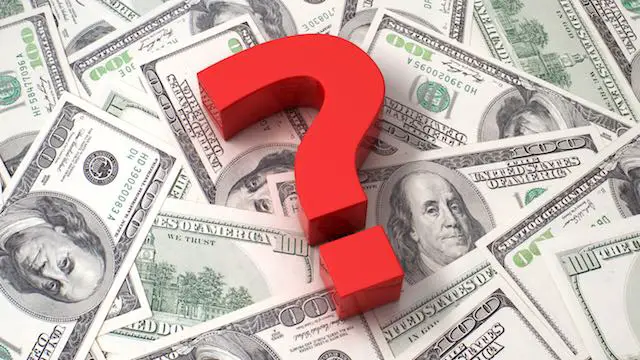Will The Government Shut Down Again in March?
Will the federal government shut down again at midnight on March 23rd? No one knows, of course, if the government will run out of funding authority. The possibility exists as the differences between the parties in Congress are still very much alive and remain unresolved.
The government has already shut down twice in 2018. The first instance was in January. It lasted for three days largely as a result of questions regarding the future of the Deferred Action for Childhood Arrivals program.
In February, Senator Rand Paul (R-KY) effectively shut down the government by himself. The second shutdown was only for a few hours overnight. Senator Paul was standing against a deal negotiated by congressional leaders that would break open the government budget caps on domestic and military spending in place since 2013.
An agreement on government spending created hundreds of billions more in more government spending despite existing federal debt now approaching $21 trillion. But, what will surprise some readers, another government shutdown is a possibility.
Did the Spending Bill Prevent Another Shutdown?
The $1.3 trillion spending bill has not been approved by Congress. Temporary funding to keep the government open lasts until midnight on March 23rd. So, in all likelihood, we will again see the same faces of national politicians on the TV news explaining how hard they are working to resolve the apparently unresolvable issues that have bedeviled the government for years.
Congress is now working toward a more permanent funding package. In this case, “permanent” means a new budget that will last until the start of the new fiscal year (FY) on October 1st.
The issues holding up agreement are not new. Issues pertaining to Obamacare, internet sales taxes, funding for the Hudson River Gateway Project, abortion and Planned Parenthood funding are some of the divisive issues yet to be resolved.
Will a shutdown actually take place? Probably not, as it is an election year and elected officials usually place primary emphasis on being re-elected in November. But, the ideological and political differences are real and anything could happen.
What About a Federal Employee Pay Raise in 2019?
Will federal employees receive a pay raise in 2019 or will there be another pay freeze?
The president’s budget proposed a pay freeze for federal employees in 2019. Of course, compared to other proposed changes in federal benefits, the pay freeze may be the least objectionable proposal depending on the current stage of a federal employee’s career.
Pay Freeze Proposed for 2019
The reality is we do not know whether there will be a pay freeze or a raise (in some amount) for 2019. In 2018, the final amount of the pay raise for the current year was announced in an Executive Order on December 22nd. That is not unusual. In fact, a date late in the year is usually when the amount of the raise for the following year is announced. It is likely a similar time frame will be followed for any raise for 2019.
Based on what has occurred in recent years, here is what is likely to occur this year.
In August, President Trump will issue a letter outlining his proposal for a federal pay raise in 2019. In 2018, this letter was issued on August 31st. While we do not know the exact wording, the letter will contain a paragraph that will look like this:
Under current law, in addition to a 1.9 percent across-the-board increase for the base General Schedule, locality pay increases averaging 26.16 percent and costing $26 billion would go into effect in January 2018. A pay increase of this magnitude is not warranted, and Federal agency budgets could not accommodate such an increase while still maintaining support for key Federal priorities such as those that advance the safety and security of the American people. Accordingly, I have determined that it is appropriate to exercise my statutory alternative plan authority under 5 U.S.C. 5303(b) and 5304a to set alternative January 2019 across-the-board and locality pay adjustments. Specifically, I have determined that for 2019, across-the-board pay increases will be ? percent and locality pay increases will average ? percent. I will specify locality pay percentages for each locality pay area by Executive Order before the first pay period in January 2019. These decisions will not materially affect our ability to attract and retain a well-qualified Federal workforce.
As the president has proposed not approving a pay raise for 2019, there may not be any raise proposed but, instead, he may support a pay freeze for 2019.
Congress Can Override President’s Proposal
Congress could override the president’s proposed pay freeze. While that has not happened in recent years, Congress may decide, since 2018 is an election year, that a pay freeze of some amount is appropriate and politically expedient.
While legislation has been introduced to provide an overall pay raise (including locality pay) of 3% for 2019, that proposal has not advanced in Congress. It is given a 6% chance of passage according to GovTrack. So, a 3% raise is possible but very unlikely.
With the divisive issues in Congress about how to spend $1.3 trillion, the federal pay raise seems to get lost in the shuffle. It is possible a budget will emerge with a sentence or two providing a raise for 2019. It is also possible President Trump will modify the administration’s proposal for a pay freeze in 2019.
In the last pay freeze, the freeze did not apply to within-grade increases or raises received as a result of a promotion. It is possible that, if there is a another freeze in 2019, these items will still be exempted.
For personal financial planning, the safest course of action would be to plan on not receiving a pay raise in 2019 while still hoping a raise does emerge in the Congressional negotiations.


